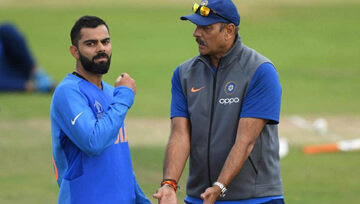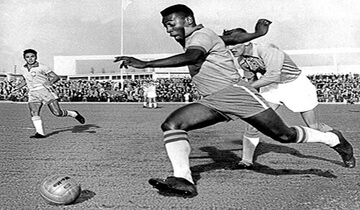Contact Your State Cricket Association
Search online to find your local state cricket association. This governing body oversees cricket in your region.
The first step to becoming a certified cricket umpire is to contact your state or territory cricket association. A quick online search should help you identify the main cricket organization for your area. This governing body is responsible for administering and promoting cricket locally, including overseeing umpire training and certification.
Visit the association’s website to find information on umpiring, including any upcoming training courses or exam dates. The website should also have contact details for the umpiring manager or coordinator who can provide guidance on getting started. Don’t hesitate to get in touch with them directly via phone or email if you need any advice or clarification.
Establishing a relationship with your state cricket association early on will be beneficial as you work through training and seek mentoring opportunities. They will get to know you and can advocate for your development as an umpire within their umpiring panel.
Check their website for umpire training programs and certification exam dates. Stay updated on opportunities to get involved.
Once you’ve identified your state cricket association, explore their website for details on umpire training programs and pathways. Most associations will run introductory courses for people interested in umpiring, followed by more advanced training for qualification.
Check for key dates like registration deadlines, course schedules, and examination dates. You’ll need to successfully complete prescribed training and pass a written rules exam to gain certification at the basic level. Higher umpiring grades have additional prerequisites like on-field evaluations and a certain number of match appointments.
Be sure to also look out for special events like free training seminars, umpire mentoring programs, and tournaments where you can gain experience. These are all valuable opportunities to improve your skills.
Stay engaged with your cricket association by signing up for newsletters, following their social media channels, and maintaining contact with the umpiring department. This will ensure you stay updated on the latest courses, seminars and chances to get actively involved in umpiring. With dedication and commitment, you’ll be on the pathway to certification in no time!
Becoming a Certified Baseball Umpire
Get Experience Umpiring Youth and Local Games
- Umpire Little League, high school, American Legion, recreation league, and other youth games to gain experience. Start with base umpiring and work your way up to calling balls/strikes.
- Find leagues and teams in your area that need umpires. Introduce yourself to their schedulers and ask to be assigned games. Be willing to start with lower levels.
- Ask experienced umpires for mentoring and feedback. Shadow them at games to learn proper mechanics and how to handle situations.
Take Umpire Certification Courses and Exams
- Enroll in the certification courses offered by your state association. Attend the training sessions to learn the rules and skills.
- Take and pass the umpire certification exam given by your association. This will qualify you to umpire local matches.
- Get certified in advanced areas like baseball field layout and maintenance. This expands your qualifications.
Join Umpire Associations and Attend Clinics
- Become a member of local and state umpire associations. This provides training resources and assignments.
- Attend regular clinics put on by these associations. They cover rules changes, mechanics drills, and situation handling.
- Build relationships with other umpires for mentoring, training partners, and exchanging game assignments.
Umpire Higher Levels of Baseball
- Once certified and experienced at lower levels, apply to umpire high school, American Legion, college, and other competitive leagues.
- Attend camps and tryouts for regional and state umpire positions. Achieving these allows you to work playoff and tournament games.
- With dedication and skill, you can progress to professional baseball umpiring. Reach out to their scouting and development contacts.
Officiate Matches for Your State Association
Once you are certified by your state cricket association, you can start umpiring matches organized by them. This is a great way to gain valuable on-field experience and build your umpiring skills. You should aim to officiate matches for 2-3 years before trying to get recommended for BCCI exams.
Get Assignments and Officiate Matches
-
Contact your state cricket association and let them know you are now a certified umpire eager to start working matches. Provide them your certification and availability.
-
They will start assigning you matches based on your experience level and their need. This may include local club games, junior leagues, women’s cricket, etc.
-
Make sure you are well prepared for each match assignment. Study the rules, get your uniform and gear ready, and reach the venue on time. Introduce yourself to both team captains.
-
Pay close attention during the matches and make fair and accurate decisions. Use proper signals and make vocal calls for catches, wides, no balls etc. Deal with any disputes calmly and as per regulations.
Seek Feedback and Continue Improving
- After officiating each match, speak to the state association for feedback on your performance. Note down areas you did well and those needing improvement.
- Don’t be disheartened by negative feedback. Take them positively as learning experiences to enhance your skills.
- Continue studying the updated rules and laws of cricket. Watch videos of top international umpires for tips. Practice your positioning and signals.
Get Recommended for BCCI Exams After 2-3 Years
- After gaining sufficient experience umpiring state matches for 2-3 years, request your association for a recommendation to BCCI.
- They will evaluate your overall performance over the years and recommend you if they find you competent to move up.
- Getting recommended by state associations is the pathway to get eligibility for BCCI umpire exams and become a BCCI certified umpire.
So be patient, keep officiating state matches sincerely for a few years, and keep improving your skills until you are ready for the BCCI level.
Pass BCCI Level 1 Exam
Appear for and pass the BCCI Level 1 umpire examination. You must attend their training program first.
To become a BCCI accredited Level 1 umpire, you first need to enroll in and complete the BCCI’s basic umpiring training program. This is usually a 2-3 day classroom program conducted by senior BCCI umpires and instructors.
The training will cover the laws of cricket, umpiring techniques, code of conduct, use of technology like TV replays, communication skills, fitness requirements and everything else you need to know to umpire basic club and school matches. Pay close attention during the sessions and take notes. Try to get clarity on any doubts.
After completing the training program, you can register to appear for the BCCI Level 1 examination. The exam has a theory paper to test your knowledge of the laws and umpiring procedures. Spend time studying the course material thoroughly before the exam. Having good knowledge of the laws, clear understanding of umpiring techniques and memorizing important procedures are key to passing the exam.
Clear the theory exam after the program. Then take the Level 1 refresher course within 1 year.
Once you pass the BCCI Level 1 exam, you will be accredited and can start umpiring matches. However, within 1 year of passing the exam, you need to take the Level 1 refresher course.
This is to reinforce your knowledge and skills after gaining some practical umpiring experience. The refresher course is usually a 1-2 day session going over the key aspects of the Level 1 program again.
Pay close attention during this refresher training as well. Make notes on areas you need improvement or clarification. Interact with the instructors to clear any lingering doubts.
Completing the refresher course ensures you are up to date on any changes to the laws or umpiring procedures. It will help sharpen your skills further before you appear for the Level 2 exam in the future.
Stay committed to keep upgrading your knowledge even after Level 1 certification. Keep referring to the laws of cricket and best umpiring practices. Keep fit to meet the physical demands of umpiring. With dedication and discipline, you will be able to progress through higher umpiring levels.
Pass BCCI Level 2 Exam
Upon completing the refresher course, take the BCCI Level 2 exam. It has theory, practical, and viva voce components.
Pass all sections to get recognized as a BCCI umpire. You can then umpire domestic and international cricket.
The BCCI Level 2 exam is the gateway to becoming a professional umpire in India. It evaluates your knowledge of the laws of cricket, umpiring skills, and ability to make correct decisions under pressure. Thorough preparation is essential to pass this exam.
Prepare well for the theory exam
This exam has 100 multiple-choice questions based on the MCC laws of cricket. Go through the laws, consult reference books, and take mock tests to familiarize yourself with the content and exam format. Memorizing the intricate details of the laws is key.
Develop practical umpiring skills
Your umpiring skills and technique will be tested in simulated cricket matches. Practice regularly by officiating local matches. Master hand signals, no-ball detection, and leg-before decisions. Learn to make prompt and accurate decisions. Stay calm under pressure.
Prepare for the viva voce
In the viva, examiners will assess your communication skills, judgment, and knowledge of the laws. Brush up on your weaker areas. Hone your ability to justify and explain decisions. Expect questions on laws, player behavior, and disciplinary matters. Exude confidence during the viva.
With rigorous preparation over 3-4 months, you can pass the BCCI Level 2 exam. Stay motivated to achieve your umpiring dreams. Passing this exam will open up a rewarding career.
Develop Key Umpiring Skills
Learn the laws of cricket thoroughly and practice hand signals.
To be an effective cricket umpire, you need to have a strong command of the laws of cricket. Study the official rule book thoroughly and memorize important details like scoring, outs, penalties, equipment regulations and more. Pay special attention to recent rule changes.
It’s also essential to learn the accepted hand signals for communicating decisions to the players and spectators. Work on giving clear, crisp signals for common events like wides, no balls, byes, leg byes, dead ball, boundaries and dismissals. Practice in front of a mirror or film yourself to critique your technique. Quick, accurate signaling is vital for controlling the match.
Cultivate concentration, decision-making, fitness, teamwork and people skills.
Umpiring requires intense concentration for long periods of time. Work on your focus by doing activities like meditation. Make quick but reasoned decisions - don’t rush but don’t agonize either. Your calls must be confident and firm.
Physical fitness is key too. Train to have the endurance to be on your feet and active all day in sometimes hot conditions. Core strength helps maintain good posture and positioning.
Cooperate with your co-umpire and respect their decisions. Defer to them when it’s their call. Build rapport with players and officials without engaging in too much conversation during play. Deal with disputes calmly and patiently.
Observe and learn from other umpires. Stay updated on any rule changes.
When starting out, watch and learn from senior experienced umpires whenever you can. Note their positioning, signals and how they manage players. Ask them for advice and feedback.
Umpiring is a craft that takes many years to master. Keep learning by studying new games, reading up on law changes and taking refresher courses. Be a student of the game.
Maintain High Umpiring Standards
Be fair, impartial and encouraging as an umpire. Focus on the spirit of the game.
As an umpire, it is crucial that you remain impartial and fair at all times. You must make each call to the best of your ability based on what you observe, not on any biases for or against a certain team or player. Focus on enforcing the rules of the game consistently so that all competitors are judged by the same standards. Do not get caught up in which team is winning or allow your calls to be influenced by the crowd or coaches. Your sole duty is to facilitate fair play.
In addition to being impartial, strive to keep an encouraging, positive attitude as an umpire. Understand that players, coaches and fans are passionate about the game and their teams. Do not take objections to your calls as personal attacks. Make your calls clearly and confidently, be open to genuine questions, and take steps to calmly defuse tense situations. Keep the focus on the spirit of the game rather than strict judgment. And be sure to acknowledge good sportsmanship when you see it from players. Your positive energy can elevate the whole game.
Communicate effectively with players, coaches and your co-umpire.
Clear communication is key to being an effective umpire. Verbally announce your calls clearly so that players and coaches understand your decisions. Make decisive signals and gestures that support your calls. If a call is close, take a moment to explain your reasoning if a player or coach genuinely inquires, but do not get drawn into prolonged debates. Keep the game moving fluidly.
Work cooperatively with your co-umpire, making eye contact before important calls to ensure you are in agreement. Have quick discussions if needed to reach joint decisions. Support each other as a team, and never contradict or overrule your partner publicly. Present unified respect for each other’s judgments. Listen attentively when your partner offers advice or clarification. Clear communication between umpires is essential.
Keep qualifying and improving yourself even after certification.
Do not rest on your laurels after becoming a certified umpire. Continue honing your skills and knowledge of the game. Keep your certification up to date. Attend regular training clinics to get feedback and connect with other umpires. Study the rule book each season to stay sharp. Analyze your own performance after games to identify areas for improvement. Stay in top physical shape to keep up with the action. And maintain a growth mindset - recognize that you can continue learning new things at any age or experience level. Umpiring excellence is a continual process, not a fixed destination. Keep your passion and commitment to upholding high officiating standards season after season.
Conclusions
Becoming a certified cricket umpire requires commitment, hard work, and a passion for the game. The pathway starts by contacting your local cricket association and getting involved in their training programs. Completing introductory courses and passing the certification exam allows you to start umpiring local matches to gain valuable experience. After officiating consistently for your state association for a few years and demonstrating your competency, you can get recommended for BCCI accreditation. Passing the BCCI Level 1 exam opens the door to higher levels like BCCI Level 2 and international cricket.
Throughout this journey, continuously developing your knowledge, skills and fitness is paramount. Observe senior umpires, study the laws meticulously, and analyze your own performance. Work on concentration, quick decision-making, signaling, man management, teamwork with your co-umpire, and communicating effectively with players and coaches. Maintaining high standards of impartiality, fairness, positivity and integrity is crucial. There is always more to learn in umpiring - keep training, upgrading yourself and enhancing your capabilities even after certification. With the right attitude and devotion, you can enjoy a rewarding career contributing to the sport you love as a professional cricket umpire.







































